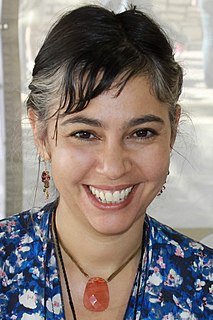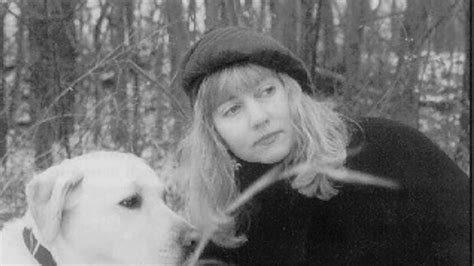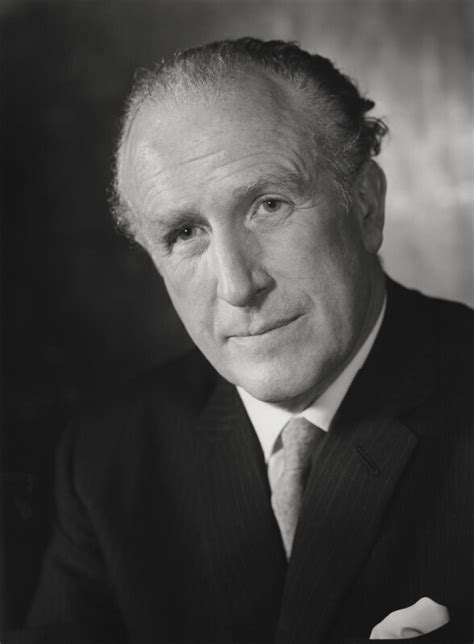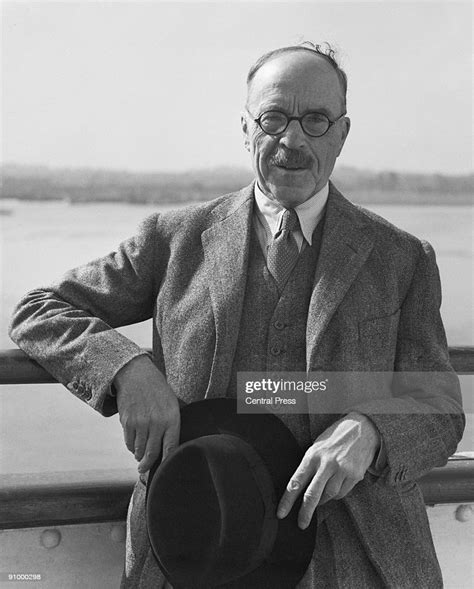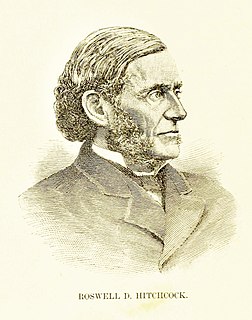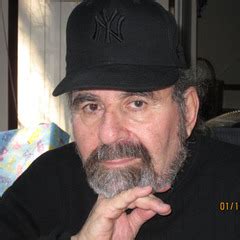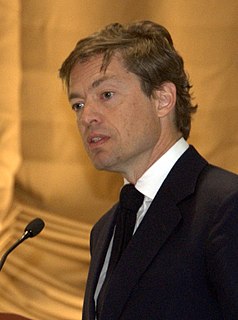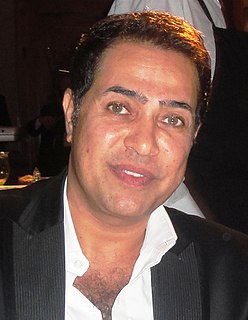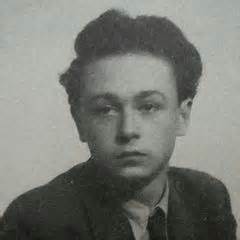Top 1200 Great Poetry Quotes & Sayings - Page 15
Explore popular Great Poetry quotes.
Last updated on December 23, 2024.
Whoever lives for poetry must read everything. How often has the light of a new idea sprung for me from a simple brochure! When one allows himself to be animated by new images, he discovers iridescence in the images of old books. Poetic ages unite in a living memory. The new age awakens the old. The old age comes to live again in the new. Poetry is never as unified as when it diversifies.
My path to poetry was slow and meandering. When I eventually found my way to graduate school at 29, making a life as a poet seemed like a bohemian fantasy. But maybe my zigzagging trajectory is just an excuse for tardiness, when fear is really the root of any reason I might give. My perfectionism and pace are certainly driven by fear that a poem is imperfect or incomplete. More significantly, my struggle to fully dedicate myself to poetry was a fear of failure.
In general, I would think that at present prose writers are much in advance of the poets. In the old days, I read more poetry than prose, but now it is in prose where you find things being put together well, where there is great ambition, and equal talent. Poets have gotten so careless, it is a disgrace. You can’t pick up a page. All the words slide off.
That being said, some of my favorite poets are extremely funny. The aforementioned Matt Rohrer, for instance. Mary Ruefle. James Tate might be the best example of someone who is systematically misread because he can be hilarious. In his poems, as in all great funny poems, the humor is one very appealing version of the surprise and associative movement that is at the heart of all poetry.
Of all the art forms, poetry is the most economical. It is the one which is the most secret, which requires the least physical labor, the least material, and the one which can be done between shifts, in the hospital pantry, on the subway, and on scraps of surplus paper. ... poetry has been the major voice of poor, working class, and Colored women. A room of one's own may be a necessity for writing prose, but so are reams of paper, a typewriter, and plenty of time.
There is a great difference, whether the poet seeks the particular for the sake of the general or sees the general in the particular. From the former procedure there ensues allegory, in which the particular serves only as illustration, as example of the general. The latter procedure, however, is genuinely the nature of poetry; it expresses something particular, without thinking of the general or pointing to it.
A lot of people think they can write poetry, and many do, because they can figure out how to line up the words or make certain sounds rhyme or just imitate the other poets they've read. But this boy, he's the real poet, because when he tries to put on paper what he's seen with his heart, he will believe deep down that there are no good words for it, no words can do it, and at that moment he will have begun to write poetry.
I want to enjoy the languor of just living, recognizing, acknowledging, taking it in, sort of amplifying it in some way. [Photography] is a great medium for that. It happens in an instant, but it gives you hours or days of time to reflect on things. It’s a beautiful system, this game of photography, to see in an instant and go back and think about later on. It’s pure philosophy. And poetry.
... poetry is not a luxury. It is a vital necessity of our existence. It forms the quality of the light within which we predicate our hopes and dreams toward survival and change, first made into language, then into idea, then into more tangible action. Poetry is the way we help give name to the nameless so it can be thought. The farthest horizons of our hopes and fears are cobbled by our poems, carved from the rock experiences of our daily lives.
Culture has to be constantly on the vanguard, too. It should be educating people, as it does in Latin America: thousands of great theatres, art cinemas, millions of free books distributed by the governments, public poetry readings, free public lectures, and all sorts of bookstores are open until early mornings, exhibitions reacting to the needs and sorrows of society, concerts of engaged music.
Poetry began in the matriarchal age, and derives its magic from the moon, not from the sun. No poet can hope to understand the nature of poetry unless he has had a vision of the Naked King crucified to the lopped oak, and watched the dancers, red-eyed from the acrid smoke of the sacrificial fires, stamping out the measure of the dance, their bodies bent uncouthly forward, with a monotonous chant of "Kill! kill! kill!" and "Blood! blood! blood!
'Dead Poets Society' was a very influential film on me and so talking about that movie with him, he just inspired me to continue writing poetry and we talked a lot about our favourite poets. My wrap present from Robin was a beautiful limited edition copy of Walt Whitman's 'Leaves of Grass' and that's a great memory for me.
When modernist poetry, or what not so long ago passed for modernist poetry, can reach the stage where the following piece by Mr. Ezra Pound is seriously offered as a poem, there is some justification for the plain reader and orthodox critic who shrinks from anything that may be labelled 'modernist' either in terms of condemnation or approbation. Better he thinks, that ten authentic poets should be left for posterity to discover than one charlatan should be allowed to steal into the Temple of Fame.
The author's conviction on this day of New Year is that music begins to atrophy when it departs too far from the dance; that poetry begins to atrophy when it gets too far from music; but this must not be taken as implying that all good music is dance music or all poetry lyric. Bach and Mozart are never too far from physical movement.
Great abilities are not requisite for an Historian; for in historical composition, all the greatest powers of the human mind are quiescent. He has facts ready to his hand; so there is no exercise of invention. Imagination is not required in any degree; only about as much as is used in the lowest kinds of poetry. Some penetration, accuracy, and coloring, will fit a man for the task, if he can give the application which is necessary.
Herein is the explanation of the analogies, which exist in all the arts. They are the re-appearance of one mind, working in many materials to many temporary ends. Raphael paints wisdom, Handel sings it, Phidias carves it, Shakspeare writes it, Wren builds it, Columbus sails it, Luther preaches it, Washington arms it, Watt mechanizes it. Painting was called "silent poetry," and poetry "speaking painting." The laws of each art are convertible into the laws of every other.
I haven't written poetry in a long time but I read it and I miss it. It is so hard to write. So hard to finish, so hard to find the exact word to make it shine. In honor of my youth I will write a poem to finish this essay. It is spring in the Ozark Mountains. The yellow flowers are blooming and the birds wake me at dawn and last night five planets lined up by the moon in the western sky. If that doesn't inspire me to poetry what will?
Poetry, even that of the loftiest, and seemingly, that of the wildest odes, [has] a logic of its own as severe as that of science; and more difficult, because more subtle, more complex, and dependent on more and more fugitive causes. In the truly great poets... there is a reason assignable, not only for every word, but for the position of every word.
Great Power, capable of everything and only temporarily handicapped by economic difficulties. We are not a great power and never will be again. We are a great nation, but if we continue to behave like a Great Power we shall soon cease to be a great nation. Let us take warning from the fate of the Great Powers of the past and not burst ourselves with pride .
He carried Paul inside and up the stairs. He gave him a drink of water and the orange chewable aspirin he like and sat with him on the bed, holding his hand...This was what he yearned to capture on film: these rare moments where the world seemed unified, coherent, everything contained in a single fleeting image. A spareness that held beauty and hope and motion - a kind of silvery poetry, just as the body was poetry in blood and flesh and bone.
How could poetry and literature have arisen from something as plebian as the cuneiform equivalent of grocery-store bar codes? I prefer the version in which Prometheus brought writing to man from the gods. But then I remind myself that...we should not be too fastidious about where great ideas come from. Ultimately, they all come from a wrinkled organ that at its healthiest has the color and consistency of toothpaste, and in the end only withers and dies.
Among all the valuable things of this world, the word is the most precious. For in the word one can find a light which gems and jewels do not possess; a word may contain so much life that it can heal the wounds of the heart. Therefore, poetry in which the soul is expressed is as living as a human being. The greatest reward that God bestows on man is eloquence and poetry. This is not an exaggeration, for it is the gift of the poet that culminates, in time, with the gift of prophecy.
What poetry is asking us to accept can be difficult. Our proximity to our mortality, the fragility of our existence, how close we live in every moment to nameless abysses, and the way language itself is beautifully, tragically, thrillingly insufficient...these are some of the engines that drive the poem. It's natural to want to turn away from these things. But we have to face them, as best we can, at least sometimes. Poetry can help us in that nearly impossible work.
Cultural criticism finds itself faced with the final stage of the dialectic of culture and barbarism. To write poetry after Auschwitz is barbaric. And this corrodes even the knowledge of why it has become impossible to write poetry today. Absolute reification, which presupposed intellectual progress as one of its elements, is now preparing to absorb the mind entirely. Critical intelligence cannot be equal to this challenge as long as it confines itself to self-satisfied contemplation.
To later Romans Ennius was the personification of the spirit of early Rome; by them he was called "The Father of Roman Poetry." We must remember how truly Greek he was in his point of view. He set the example for later Latin poetry by writing the first epic of Rome in Greek hexameter verses instead of in the old Saturnian verse. He made popular the doctrines of Euhemerus, and he was in general a champion of free thought and rationalism.
The secret of understanding poetry is to hear poetry's words as what they are: the full self's most intimate speech, half waking, half dream. You listen to a poem as you might listen to someone you love who tells you their truest day. Their words might weep, joke, whirl, leap. What's unspoken in the words will still be heard. It's also the way we listen to music: You don't look for extractable meaning, but to be moved.
The man who invented Eskimo Pie made a million dollars, so one is told, but E.E. Cummings, whose verse has been appearing off andon for three years now, and whose experiments should not be more appalling to those interested in poetry than the experiment of surrounding ice-cream with a layer of chocolate was to those interested in soda fountains, has hardly made a dent in the doughy minds of our so-called poetry lovers.
I began writing for kids because I wanted to effect a change in American society. I continue in that spirit. By the time we reach adulthood, we are closed and set in our attitudes. The chances of a poet reaching us are very slim. But I can open a child's imagination, develop his appetite for poetry, and more importantly, show him that poetry is a natural part of everyday life. We all need someone to point out that the emperor is wearing no clothes. That's the poet's job.
Mathematics is a form of poetry which transcends poetry in that it proclaims a truth; a form of reasoning which transcends reasoning in that it wants to bring about the truth it proclaims; a form of action, of ritual behavior, which does not find fulfilment in the act but must proclaim and elaborate a poetic form of truth.
Forget what you learned about poetry in school. (That it's complex, opaque, a problem to be solved in 1500 words by tomorrow.) Poetry is the last preserve of honest speech and the outspoken heart. It holds the cadence of common life. It has a passion for truth and justice and liberty; it is a buoy to people in ordinary trouble: to a friend whose life has gone skidding into the meridian, who has been struck by bad news, who is frying eggs and hash browns and has whiny child clinging to his pant leg.
I think the first time I really heard poetry was in the schoolyard. Just the little limericks that kids say when they're jumping rope and playing games. I think that's the first time I heard rhyming words - I don't know if I'd call that the definitive poetry, but that's when I heard rhyming words said and not necessarily sung.
Poets are political, they have to be reflections of their times [because] they're living in their times... Poetry is political in that it's standing in opposition to fascism. Good poetry asks a bunch of questions and asks the audience to interact with themselves or see themselves in it; maybe you like it or you don't like it. But the fascist sort of stuff plays on your fears and tells you to jump on the party line and gives some simple excuses - blame this person.
Poetry leads us to the unstructured sources of our beings, to the unknown, and returns us to our rational, structured selves refreshed. Having once experienced the mystery, plenitude, contradiction, and composure of a work of art, we afterward have a built-in resistance to the slogans and propaganda of oversimplification that have often contributed to the destruction of human life. Poetry is a verbal means to a nonverbal source. It is a motion to no-motion, to the still point of contemplation and deep realization.
IN PERSIA I SAW that poetry is meant to be set to music & chanted or sung--for one reason alone--because it works.A right combination of image & tune plunges the audience into a hal (something between emotional/aesthetic mood & trance of hyperawareness), outbursts of weeping, fits of dancing--measurable physical response to art. For us the link between poetry & body died with the bardic era--we read under the influence of a cartesian anaesthetic gas.
I tend to like the way poets form communities. Writing can be lonely after all. Modern life can be lonely. Poets do seem to be more social than fiction writers. This could be because of poetry's roots in the oral tradition - poetry is read aloud and even performed. I'm just speculating, of course. At any rate, because poets form these groups, they learn from one another. That is one of the best things about being a poet.
We are bored in the city, there is no longer any Temple of the Sun. Between the legs of the women walking by, the dadaists imagined a monkey wrench and the surrealists a crystal cup. That's lost. We know how to read every promise in faces-the latest stage of morphology. The poetry of the billboards lasted twenty years. We are bored in the city, we really have to strain to still discover mysteries on the sidewalk billboards, the latest state of humor and poetry.
If a serious statement is defined as one that may be made in terms of waking life, poetry will never rise to the level of seriousness. It lies beyond seriousness, on that more primitive and original level where the child, the animal, the savage, and the seer belong, in the region of dream, enchantment, ecstasy, laughter. To understand poetry we must be capable of donning the child's soul like a magic cloak and of forsaking man's wisdom for the child's.
Where philosophy ends, poetry must commence. There should not be a common point of view, a natural manner of thinking which standsin contrast to art and liberal education, or mere living; that is, one should not conceive of a realm of crudeness beyond the boundaries of education. Every conscious link of an organism should not perceive its limits without a feeling for its unity in relation to the whole. For example, philosophy should not only be contrasted to non-philosophy, but also to poetry.
In high school, in 1956, at the age of sixteen, we were not taught "creative writing." We were taught literature and grammar. So no one ever told me I couldn't write both prose and poetry, and I started out writing all the things I still write: poetry, prose fiction - which took me longer to get published - and non-fiction prose.
I don't really think in terms of the future of literature. I think literature will be around "forever" - but in a relatively niche way, like jazz and poetry, although probably more widely consumed than jazz and poetry since it's fundamentally a narrative form. And I think that's important and places like Word Riot and 'The New York Tyrant' and 'n+1' will be responsible for keeping it alive.
A magical portal opened inside my mind and conducted me into an astonishing world. [...] Before this moment I had divined but had never known with such positiveness that the world is extremely large and that suffering and toil are the companions and fellow warriors not only of Cretan, but of every man. [...] That by means of poetry all this suffering and effort could be transformed into dream; no matter how much of the ephemeral existed, poetry could immortalize it by turning it into song.




